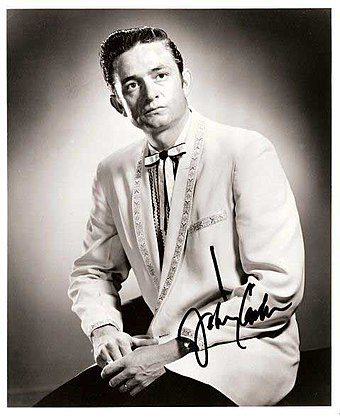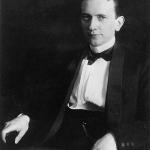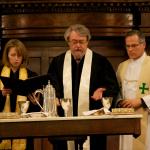
Recalling Johnny Cash & A Consideration of Love as a Zen Koan
Or, How to Become a Buddha of Fire
Burning burning burning burning
O Lord Thou Pluckest me out
O Lord thou pluckest
T. S. Eliot, the Waste Land
Johnny Cash was born on this day, the 26th of February, in 1932. He was the middle of seven children. Like many Americans the family claimed some Native American inheritance, although a later DNA test of his daughter showed that, like the case for so many, this was not so.
Like all of us he was birthed of dream and hope and lies and hurt.
Johnny would grow up to be an award winning musician. As one article noted “Much of Cash’s music contained themes of sorrow, moral tribulation, and redemption, especially in the later stages of his career. This and a compelling stage presence and in later years affecting an all-black stage wardrobe was memorable.
He died twenty years ago. But Johnny Cash continues to have a half life in the minds and hearts of many. Including me.
Actually for many years I felt there was a sermon I wanted to write based on paring two of his songs.Well, one he wrote. And the other he lifted.
I never wrote the sermon. But, I continue to think about it.
It turns on the mystery we call love.
When I think of the great mystery at the core of our being I’m flooded with images and feelings. At the very heart of it all is my lifetime consideration of the Buddhist term Śūnyatā, that mysterious pregnant emptiness at the foundation point of Mahayana Buddhism. Not precisely empty. Not exactly fullness. It carries all the potentiality of existence. It is the field of birth and life and death.
I sit with it, and that word love comes to me unbidden.
I recall an etymological dictionary that suggested the distant ancestor of love was “lub,” a word meaning desire. It kind of works, don’t you think? Of course desire is a dangerous thing, a variation on the very thing that old Gautama Siddhartha marked out as the cardinal cognitive error in human consciousness – grasping, specifically grasping after that which is in motion as if it were permanent. A fool’s chase that ends, always, in grief.
At the same time I’ve seen people who try to follow that analysis and cut themselves off from life. It births a desiccated spirituality and a stunted person. Another mistake. Of course, then there’s that other old Buddhist caution that describes our lives as “one continuous mistake.” True stuff, that.
So, how do we deal with this conundrum? On the one hand it is a dance with grief. On the other, in denying it, we become something ugly. Johnny Cash had his own problems with love.
His song “I walk the Line” was his attempt at a vow of fidelity to his first wife Vivian Liberto.
There is something noble in it. And, it is shadowed by his failure to live up to the vow. It is easy to rebuke him for his failure, and his turn from his vow. I think he deserves some rebuke. And.
When we speak of love we are talking around a mystery, something half dove and half dragon. It is the song of peace. And it breathes a fire that can burn us to ashes.
Johnny’s second wife June Carter wrote her own song about love. And Johnny really, really liked it. And he wanted to make it his own, and he did.
Oh, I love those Mexican horns. And there is something deeply authentic here.
No more toeing the line.
Now love becomes something all consuming.
Something real, but also so harsh it kills. Ring of fire.
That’s when I found myself thinking of June. Actually, it was her song. And if you’ve ever heard her versions, they’re different. No swagger. Cool as that is. Here something else is happening.
Here love comes as the destroyer. Two marriages collapse. Pain flows like blood.
And two people are caught in the great desire.
And here I find the mystery revealed. In that moment of confrontation something is found. We are wounded, and the world is wounded. To know ourselves is to know failure and collapse, as the old man said, sickness, the best we can hope for, old age, and, somewhere along the line, death.
And in between the enclosing great night some spark, something beautiful, burning like a lamp, and something terrible.
A ring of fire.
And the call for us. Here’s the Zen of this. Become a Buddha of fire.
Let’s call it a Zen song.
Or, perhaps, just a song of love.













